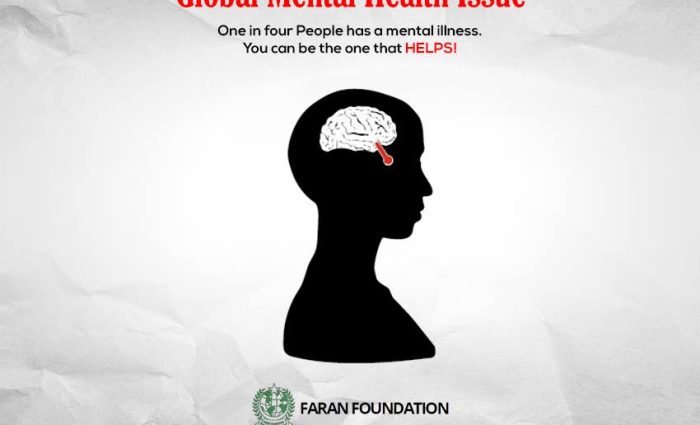Mental health has long been a topic of great importance, but recent research has made it clear that understanding mental health is just as essential as addressing physical health. From the way our brains process emotions to the chemicals that influence our mood, mental health is deeply rooted in both biology and environment. In this blog, we explore the latest research on mental health, what we’ve learned about the brain, and how we can better support mental well being.
Mental health is not a destination, but a process. It’s about how you drive, not where you’re going.
Noam Spence
1. The Brain and Mental Health: What Science Tells Us
Our mental health is intricately tied to the way our brain functions. Research in neuroscience has made it clear that mental health disorders are not simply the result of “weakness” or “personal failings,” but are often rooted in biological and environmental factors. The brain’s chemistry, structure, and the way it processes information play significant roles in our emotional and mental well-being.
Neurotransmitters and Mental Health
One of the key areas of research in mental health focuses on neurotransmitters, the chemical messengers in our brain that help transmit signals between nerve cells. These chemicals—including serotonin, dopamine, and norepinephrine—have been linked to mood regulation, reward processing, and emotional responses.
- Serotonin is often associated with feelings of happiness and well-being. Low levels of serotonin have been linked to depression, anxiety, and sleep disturbances.
- Dopamine is involved in the brain’s reward system. When dopamine levels are dysregulated, it can lead to issues such as addiction, depression, and motivation problems.
- Norepinephrine affects alertness and arousal. Abnormal levels of norepinephrine are associated with anxiety and stress-related disorders.
Research has shown that antidepressants and other psychiatric medications can help to regulate these neurotransmitters, which in turn can alleviate symptoms of various mental health conditions.
2. The Role of Genetics in Mental Health Disorders
Another crucial area of research focuses on the role of genetics in mental health. While environmental factors such as trauma, stress, and social support play a significant role in mental health, genetic predisposition can also contribute to the development of various disorders.
Studies have shown that individuals with a family history of mental health disorders such as schizophrenia, bipolar disorder, or major depressive disorder may be at a higher risk of developing similar conditions. However, it’s important to note that genetics alone do not determine mental health outcomes. Environmental factors, lifestyle choices, and personal experiences are just as crucial.
Recent advancements in genetic research have identified specific genes that may increase the likelihood of developing mental health conditions. However, much more research is needed to understand how genes interact with environmental factors to trigger or exacerbate mental health issues.
3. The Impact of Stress on Mental Health
One of the most widely researched areas in the field of mental health is the effect of stress on both our brain and body. Chronic stress can have devastating effects on mental health, and recent studies have shown that prolonged exposure to stress can lead to structural changes in the brain.
Chronic Stress and the Brain
Under chronic stress, the hypothalamic-pituitary-adrenal (HPA) axis, which regulates the body’s stress response, can become dysregulated. This dysregulation may cause the brain to overproduce cortisol, the primary stress hormone. High levels of cortisol have been linked to depression, anxiety, memory problems, and even conditions like post-traumatic stress disorder (PTSD).
Research has also shown that chronic stress can shrink the hippocampus, the part of the brain involved in memory and emotional regulation. This shrinking may contribute to the development of depression and anxiety.
4. The Importance of Social Connections for Mental Health
The relationship between social connection and mental health is another area of ongoing research. Numerous studies have shown that individuals with strong social support networks have better mental health outcomes, including lower rates of depression and anxiety. Social connection provides individuals with a sense of belonging, purpose, and emotional support, which are crucial for mental well-being.
Loneliness and Mental Health
Conversely, loneliness has been identified as a significant risk factor for a variety of mental health problems. Research conducted by the National Institute on Aging has found that loneliness is linked to higher levels of depression, anxiety, and even cognitive decline in older adults. The absence of meaningful social relationships can trigger feelings of isolation and worthlessness, which may exacerbate mental health conditions.
Interestingly, the rise of social media has been a double-edged sword. While it allows people to stay connected, research suggests that it can also increase feelings of loneliness and anxiety, particularly when individuals use it to compare themselves with others or experience online bullying.
5. Therapy and Psychological Interventions: What Works?
One of the most researched areas in mental health is the effectiveness of psychotherapy and counseling. Over the past few decades, scientific studies have shown that therapy can be highly effective in treating a variety of mental health disorders, ranging from anxiety and depression to trauma and personality disorders.
Cognitive Behavioral Therapy (CBT)
Among the most evidence-based forms of therapy is Cognitive Behavioral Therapy (CBT), which focuses on changing negative patterns of thinking and behavior. Studies have shown that CBT can be highly effective in treating depression, anxiety, OCD, and PTSD. By helping individuals identify distorted thoughts and replace them with more realistic, balanced ones, CBT helps improve emotional regulation and coping strategies.
Mindfulness and Acceptance-Based Therapies
Another therapeutic approach that has gained traction is mindfulness-based therapy. Mindfulness practices, which include techniques like meditation and breathing exercises, have been shown to reduce symptoms of anxiety, depression, and stress. These practices help individuals stay grounded in the present moment, manage intrusive thoughts, and develop better emotional resilience.
6. The Rise of Digital Mental Health Tools
In recent years, the rapid growth of digital mental health tools—such as mental health apps, online therapy platforms, and telehealth services—has revolutionized the way people access care. Digital tools provide a level of accessibility and convenience that traditional therapy settings often cannot.
Research has demonstrated that apps like Headspace, Calm, and Woebot can effectively reduce symptoms of stress, anxiety, and depression. Additionally, studies show that online therapy can be as effective as in-person therapy for many individuals, particularly when it comes to treating anxiety and depression.
However, it’s important to remember that digital tools should complement, not replace, professional care when needed. They offer valuable support, but for more complex or severe conditions, face-to-face therapy remains essential.
Conclusion: The Future of Mental Health Care
Advancements in mental health research have improved our understanding of the brain and the factors that influence mental health. While much has been learned, we still have a long way to go. By continuing to invest in mental health research and promote awareness, we can continue to reduce stigma and ensure that individuals have access to the care and resources they need.
The future of mental health care will likely involve a blend of personalized treatments, biological understanding, digital interventions, and community-based support systems. Most importantly, the ongoing research and conversations about mental health will help us foster a society where mental well-being is treated with the same importance as physical health.
If you or someone you know is struggling with mental health issues, remember that help is available. Therapy, medication, and community support can all play key roles in recovery. Your mental health journey is important, and you don’t have to walk it alone.



